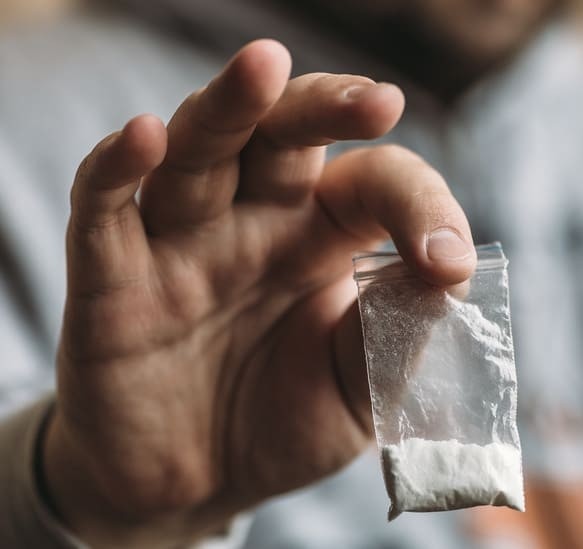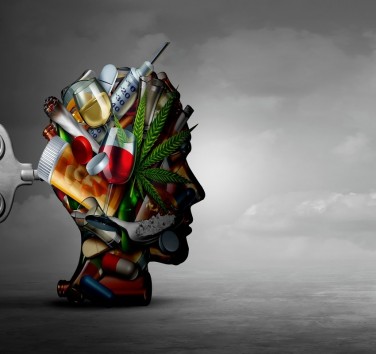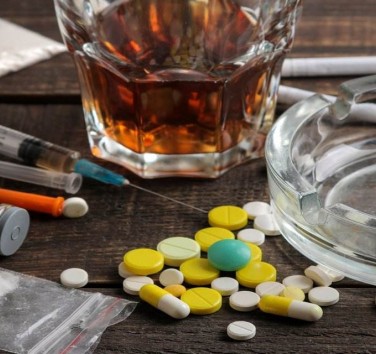CBD has not yet proven to be able to wean a cocaine user off cocaine despite encouraging animal studies. There is a consensus in the scientific world regarding the positive effects of CBD on cocaine withdrawal.
In this article, we will look in detail at what CBD and cocaine are and the studies carried out on the subject.
What is cannabidiol (CBD)?
Cannabidiol, or CBD, is one of the 120 cannabinoids found in the cannabis plant. It does not produce a psychoactive effect like THC. It has many therapeutic properties that are beneficial for certain symptoms of disease, including chronic pain, anxiety and inflammation. CBD has been proven not to alter the state of consciousness of its users and does not produce an addictive effect.
Many diseases are currently benefiting from these therapeutic advantages such as fibromyalgia, epilepsy, endometriosis, nausea and even cancer to some degree. In France, CBD concentrated products are legally marketed in online CBD shops such as 321 CBD
What is cocaine?
The discovery of cocaine
Cocaine, a tropanic alkaloid extracted from the coca leaf, is a stimulating and highly addictive drug. For thousands of years, people in South America have chewed and ingested coca leaves for their stimulating effects
By the early 1900s, purified cocaine was the main active ingredient in many tonics and elixirs developed to treat a wide variety of illnesses. It even became an ingredient in the first formulations of the American soft drink Coca-Cola®
Before the development of synthetic local anesthetics, surgeons used cocaine to block pain. However, research has since shown that cocaine is a highly addictive substance that can alter the structure and function of the brain if used repeatedly. Other less harmful drugs have since been developed and replaced.
Cocaine today
From a medical standpoint, cocaine is now a drug that can be administered by a physician for legitimate medical uses, such as local anesthesia for certain eye, ear and throat surgeries
Despite the illegal status of cocaine in the population, its use is still very prevalent among individuals from certain socio-economic groups, usually the affluent (as opposed to crack in the poor). It is estimated that several million people use this substance at least occasionally, and become dependent on it very quickly
In illegal sales networks, dealers dilute or "cut" cocaine with non-psychoactive substances such as cornstarch, talcum powder, flour or baking soda in order to increase their profits
Effects of cocaine on the body
Cocaine use affects every system in the body, but its main target is the central nervous system. Some of the short-term side effects of cocaine use are:
Euphoria / Extreme happiness
Nausea
Paranoia
Sensory sensitivity
Loss of appetite
Irritability or anger
Rapid or irregular heartbeat
Tremors and muscle twitching
Frequent heavy use of cocaine can lead to more serious health problems:
Seizures
Heart and vascular disease
Mood swings
Damage to the lungs
Memory loss
Sleep problems
Existing treatments for cocaine addiction
Today, cocaine addiction is treated with medication and various forms of psychotherapy. Cognitive behavioral therapy (CBT) is the most commonly used to help treat people with cocaine addiction
%20(1).jpeg)
How does cocaine work in the brain?
Cocaine produces psychoactive and addictive effects primarily by acting on the limbic system of the brain, a set of regions that regulate pleasure and motivation
In the short term, cocaine ingestion causes a buildup of the neurochemical dopamine, which results in euphoria and a strong desire to use the substance again
According to a comprehensive scientific review of cocaine from 2005cocaine changes the neural circuitry in the brain. This is of fundamental importance for human survival
Such alterations affect the individual in a profound way and scientists are still trying to understand the mechanisms behind these long-term effects, including addiction and the risk of relapse
How can CBD help with cocaine withdrawal?
CBD shows promise in treating cocaine addicts
First of all, a 2019 study found that CBD was able to reverse the toxicity, inflammation, and seizures caused by cocaine use. Motivation to use cocaine was also reportedly reduced with CBD. Reservations are however expressed on the effectiveness of CBD which, according to the study, depends on many factors (dosage, frequency of administration of CBD, processes studied etc.).
A meta-analysis from 2020 gathering 14 relevant studies also provided evidence of a promising influence of CBD on cocaine addiction
Indeed, the treatment of cocaine addiction with CBD has effects on cocaine-induced reward in the brain, cocaine consumption in general, behavioural responses, anxiety or neuronal proliferation
According to this analysis, CBD promotes the reduction of cocaine self-administration by increasing the threshold for self-stimulation. Clinical examinations on human patients are to be carried out to confirm its positive effects.
Cannabinoids are also considered to be useful components in protecting against the destructive effects of cocaine on the nervous system, leading to complications such as convulsions. CBD acts as an anti-epileptic. From studies on the effect of CBD on epilepsy have confirmed this effect.
The cannabinoids present in cannabis are therefore a precious help in strengthening the condition of the consumer and avoiding sometimes irreversible complications.
The dosage of CBD to treat cocaine addiction
However, one must be careful and never treat oneself. The treatment of cocaine addiction is not to be taken lightly and requires appropriate medical support
Furthermore, people addicted to cocaine should not try to wean themselves off it by taking CBD. The dosage of CBD to be consumed will be crucial in this treatment and should be decided by professionals, at the risk of suffering traumatic side effects (vomiting, increased anxiety, no effects...).
Conclusion
CBD offers promising possibilities against cocaine addiction, although many clinical tests on humans have yet to be carried out.
CBD is a fascinating product whose natural therapeutic benefits are still being discovered by researchers. To obtain quality CBD products, approved in France, visit the e-shop 321 CBD.









